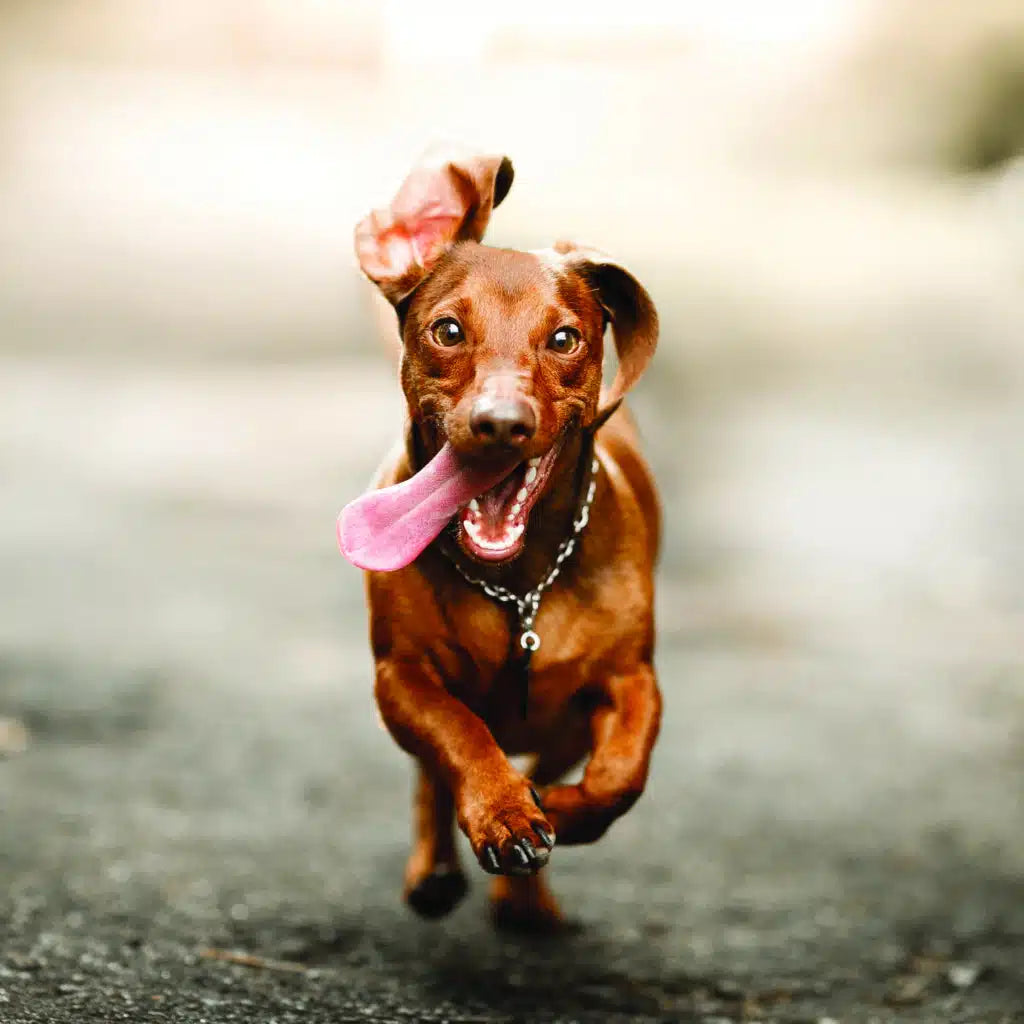
Why Is My Dog Breathing Heavily? Understanding the Causes and When to Worry
Share
Why Is My Dog Breathing Heavily? Causes, Symptoms & Vet Advice
Many pet parents worry when their dog starts breathing rapidly without any obvious cause. While it's understandable to feel concerned, heavy breathing is not always a sign of illness. In fact, in most cases, it’s a completely normal response to various natural stimuli.
In this article, we’ll explore the physiological and medical reasons for heavy breathing, how to tell the difference between them, when to call the vet, and provide practical tips for every dog owner.

Normal (Physiological) Causes of Heavy Breathing
In healthy dogs, rapid breathing can be caused by natural processes such as:
1. Physical Activity
After playing or going for a walk, dogs breathe rapidly to regulate body temperature. This process, called panting, is normal and usually stops within 30 minutes.
2. Heat or Overheating
In hot weather, dogs pant to cool down since they don't sweat like humans. Panting is the main thermoregulation mechanism in dogs.
3. Stress, Anxiety, or Fear
When dogs are scared or anxious, the sympathetic nervous system kicks in, increasing heart rate and breathing. This is the body’s natural fight-or-flight response.
4. Excitement or Happiness
Positive emotions such as joy can also cause a dog to breathe more quickly. Although similar to stress, excitement is not harmful and usually short-lived.
5. Post-Meal Cooling
After eating or drinking, a dog’s internal temperature may rise slightly. Panting helps bring the body back into balance.
💡 Important: Dogs pant with their mouths open and tongues out to cool down. If your dog appears relaxed and happy, heavy breathing is likely physiological and harmless.

Medical Causes of Heavy Breathing in Dogs
While panting is often normal, it can also signal a health problem. Medical causes should never be ignored, especially if the breathing looks strained or lasts too long.
1. Heart Disease
The heart and lungs are closely connected. If the heart isn’t pumping properly, the lungs won’t receive enough oxygen, causing shortness of breath.
2. Pain
Heavy breathing is a natural response to pain or physical discomfort. Even internal pain can cause this reaction.
3. Fever or Infection
Just like overheating, fevers force the body to cool down. Dogs with infections may pant excessively to lower their temperature.
4. Anemia
Anemia reduces red blood cells, which transport oxygen. As a result, the body compensates with faster breathing to deliver more oxygen.
5. Toxins or Poisoning
Certain poisons can damage red blood cells or affect the nervous system, leading to panting, drooling, and even collapse.
6. Respiratory Conditions
Diseases like pneumonia, bronchitis, or collapsing trachea make it difficult for dogs to breathe, resulting in labored or noisy panting.
7. Brachycephalic Obstructive Airway Syndrome (BOAS)
Flat-faced breeds like Pugs, Bulldogs, and Pekingese have narrowed airways, which makes breathing harder—especially in heat or stress.

When to See a Veterinarian
Knowing when heavy breathing is serious can make all the difference. Watch for the following warning signs:
Red Flags That Require Veterinary Attention:
-
- Panting without a clear cause like heat, play, or excitement.
- Persistent panting lasting more than 30–60 minutes after exercise or stimulation.
- Labored breathing for more than a day, especially if combined with symptoms like:
-
- Wheezing or snorting
- Loss of appetite
- Lethargy
- Coughing or sneezing
- Blue gums or tongue
-
Changes in behavior, such as:
- Avoiding contact
- Shaking or trembling
- Wide eyes, pacing, or restlessness
- Tucked tail and withdrawn posture
- Excessive drooling, vomiting, or signs of nausea (possible poisoning).
If any of these symptoms appear, consult your vet immediately.

Tips for Dog Owners: How to Prevent Breathing Issues
To keep your dog comfortable and safe, follow these veterinarian-backed tips:
- Always provide fresh water, especially in hot weather.
- Avoid walking your dog during peak heat hours (11 AM–4 PM). Choose early morning or evening strolls.
- Keep your home cool and well-ventilated. Use fans, AC, or cooling mats during summer.
- Groom regularly, especially for long-haired breeds. Trim fur (don’t shave) to avoid heat buildup.
- Use cooling gear such as vests or mats from pet stores or grooming salons.
- Don’t place wet towels on your dog’s head—they retain heat. Instead, rinse your dog gently with cool (not cold) water.
- Watch for symptoms and changes in your dog’s behavior.
Final Thoughts
While frequent breathing may simply be your dog’s way of staying cool or expressing excitement, it’s essential to monitor the context and symptoms. Knowing the difference between normal panting and a medical emergency can save your dog’s life.
Always trust your instincts—if something seems off, don’t hesitate to reach out to your vet.
